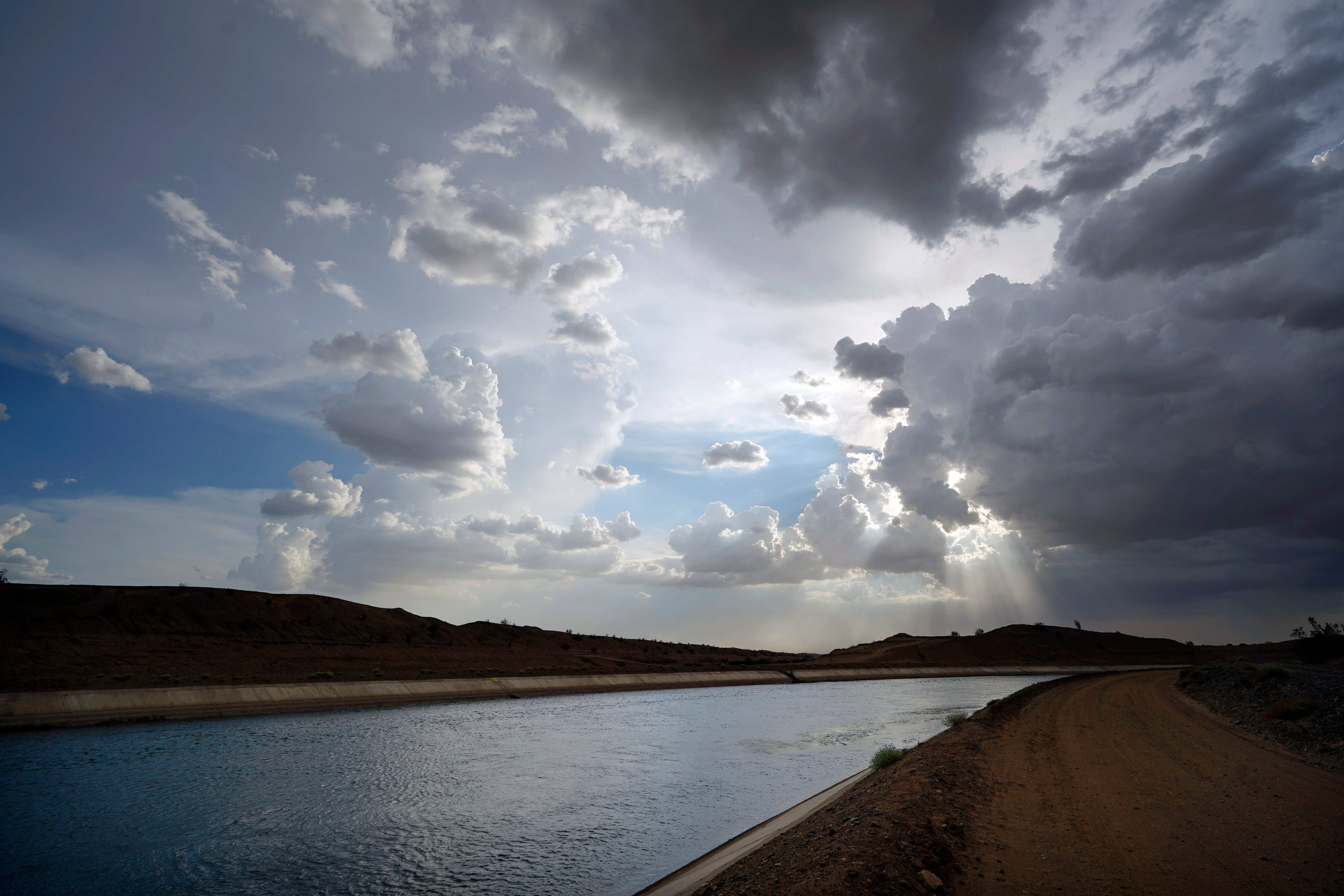California water agencies offer Colorado River savings
California water agencies that rely on the parched Colorado River say they're willing to cut their use by about one-tenth

Your support helps us to tell the story
From reproductive rights to climate change to Big Tech, The Independent is on the ground when the story is developing. Whether it's investigating the financials of Elon Musk's pro-Trump PAC or producing our latest documentary, 'The A Word', which shines a light on the American women fighting for reproductive rights, we know how important it is to parse out the facts from the messaging.
At such a critical moment in US history, we need reporters on the ground. Your donation allows us to keep sending journalists to speak to both sides of the story.
The Independent is trusted by Americans across the entire political spectrum. And unlike many other quality news outlets, we choose not to lock Americans out of our reporting and analysis with paywalls. We believe quality journalism should be available to everyone, paid for by those who can afford it.
Your support makes all the difference.California water agencies that rely on the parched Colorado River said Wednesday they can reduce their use by one-tenth starting in 2023 in response to calls for cuts from the federal government.
The agencies, which supply water to farmers and millions of people in Southern California, laid out their proposal in a letter to the U.S. Department of the Interior. It comes as drought continues to diminish the river, and months after the U.S. Bureau of Reclamation first called on users to voluntarily limit their reliance on it.
California shares the river's water with six other states, tribes and Mexico. It's has rights to the single largest share of and is the last to lose water in times of shortage.
The proposal to cut 400,000 acre feet annually marks the first time California's water agencies are publicly and formally indicating what they're willing to give up since federal officials demanded cuts this summer. The state has been under pressure from other states to figure out how to use less as the river's reservoirs drop so low they risk losing the ability to generate hydropower and deliver water.
An acre-foot of water is enough to supply about two households for a year. California is entitled to 4.4 million acre feet of Colorado River water each year.
“While a broad multi-state agreement to conserve water across the Basin has not been reached, the California agencies propose to take voluntary action now to conserve water in coming months,” the California agencies wrote.
But the letter was scant on details. The agencies said they have “a collection of proposed water conservation and water use reduction opportunities" that would help keep more water in Lake Mead, one of the river's key reservoirs. The letter did not list any specific projects.
The agencies would also expect to be paid for the savings with money from the federal Inflation Reduction Act, which included $4 billion for drought relief. The letter doesn't specify a rate of payment the agencies are expecting.
Four California water agencies take water from the river: The Imperial Irrigation District, the Metropolitan Water District of Southern California, the Coachella Valley Water District and the Palo Verde Irrigation District.
The irrigation district in California’s Imperial Valley gets a larger share of the river than any other entity anywhere. It’s the only source of water for crops in California’s southeastern desert, where many of the nation’s winter vegetables, like broccoli, as well as feed crops like alfalfa are grown.
Runoff from the irrigation district also feeds the Salton Sea, a lake in Southern California created in 1905 when the Colorado River overflowed. Once a destination, the lake has been drying up in recent decades, exposing residents to harmful dust and harming ecosystems.
“Voluntary water conservation actions outlined in this letter depends on a clear federal commitment to contribute meaningfully to stabilization efforts at the Salton Sea," the agencies wrote.